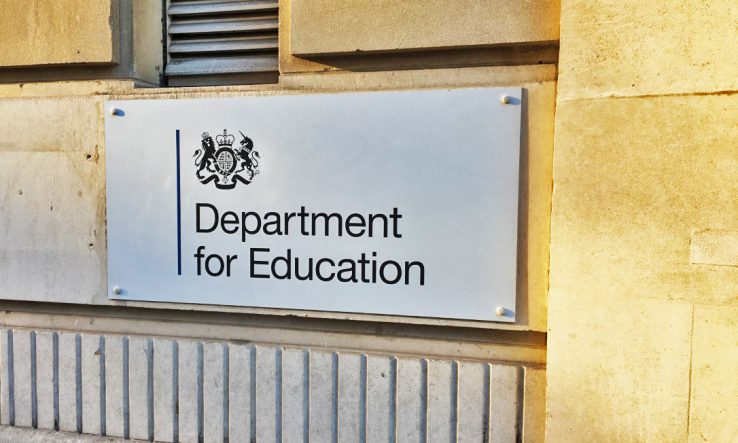
Ministers unveil £15 million boost for hardship funds but face criticism for “inadequate” maintenance uplift
The Department for Education has announced that it is to provide universities in England with £15 million in hardship funding for students worst affected by the cost of living crisis—but it has been criticised for failing to deliver a “meaningful” increase to maintenance loans.
The government said the £15m would be added to the £261m student premium, which institutions can use to fund student support payments. Universities will be responsible for how the additional money is distributed, it said.
On 11 January, ministers also confirmed that maintenance loans to support undergraduate and postgraduate students with living and other costs would be increased by 2.8 per cent for the 2023-24 academic year. The Disabled Students’ Allowance will receive the same uplift, as will lonans for students with child or adult dependants who are attending full-time undergraduate courses.
This is in line with previously forecast levels of inflation—but current inflation rates, as measured by the Consumer Price Index, are around 11 per cent. The Russell Group of research-intensive universities described the uplift as “disappointing”, while the National Union of Students said it was “woefully inadequate”.
Fee freeze
Robert Halfon, minister for skills, apprenticeships and higher education, said that students “continue to face financial challenges, which is why we are increasing loans…for living and other costs for a further year”.
“To support universities to top up their own hardship funds, we are…making an additional £15m available. This will bring the total available to universities to draw on in supporting their students in hardship to £276m this academic year,” he said.
Halfon also reconfirmed the previously announced decision to freeze tuition fees for a full-time undergraduate course at a maximum of £9,250. While this will help prevent an increase in the upfront debt taken on by graduates, universities have complained that their income from fees is not keeping pace with inflation.
Ministers announced last year that, from the 2023-24 academic year, the government will cut interest rates for new students to the Retail Price Index measure of inflation. This was also reconfirmed by Halfon on 11 January.
Falling short
Tim Bradshaw, chief executive of the Russell Group, welcomed the additional £15m but said it was “disappointing” that the department had “failed to deliver a meaningful increase to maintenance loans or take the opportunity to address some of the flaws in the forecasting process to ensure they keep up with rising costs”.
Russell Group calculations show that the 2.8 per cent increase in maintenance loans means that a full-time student living away from home outside London will receive £9,978 next year, leaving them £1,523 short of the £11,501 they would have received had the loan increased by actual inflation since 2020-21.
The Department for Education uses inflation projections that can be almost two years out of date, which fail to take into account exceptional pressures such as the pandemic and the war in Ukraine.
“Additional government assistance is urgently needed to address the growing financial pressures on students,” Bradshaw said. “Without it, we are concerned this will have an increasing impact on students’ studies and wider mental health and wellbeing.”
Chloe Field, vice-president for higher education at the National Union of Students, said the government needed to “go further to protect students in the long term, by increasing the value of the maintenance package”.
“The 2.8 per cent increase in the maintenance loan for 2023-24 is woefully inadequate and will leave students over £1,500 worse off than they would have been if student support was tied to inflation,” she said. “More than a quarter of students are living on less than £50 a month after rent and bills. If maintenance support continues to lag behind inflation, the number of students in poverty is only going to increase.”
University and College Union general secretary Jo Grady said that “in the context of high inflation, rising energy bills, transport costs, rents and falling wages”, the 2.8 per cent increase in the maintenance loans “will barely touch the sides”.
“Investment in students is an investment in the future of the UK and it is high time ministers revisited the package of support available to students and made it suitable for the times we live in. Sadly, today’s announcement falls short and leaves students financially exposed.”
Vivienne Stern, chief executive of Universities UK, said: “Although it’s an increase, [2.8 per cent] does not make up for the real terms cut to maintenance that students have experienced since inflation began to rapidly increase.”